
Recorded at Vision Festival XXIV in June of 2019, legendary drummer Alvin Fielder's friends and long time partners Kidd Jordan on tenor saxophone, Joel Futterman on piano and William Parker on contrabass are joined by drummer/percussionist Hamid Drake for an emotional and potent swinging free jazz tribute to Fielder, who passed away in January of that year.
In Stock
Quantity in Basket: None
Log In to use our Wish List
Shipping Weight: 3.00 units
EU & UK Customers:
Discogs.com can handle your VAT payments
So please order through Discogs
Sample The Album:
Kidd Jordan-tenor saxophone
Joel Futterman-piano
William Parker-contrabass
Hamid Drake-drums, percussion
Click an artist name above to see in-stock items for that artist.
UPC: 195269000677
Label: Mahakala Music
Catalog ID: MAHA-004
Squidco Product Code: 31697
Format: CD
Condition: New
Released: 2021
Country: USA
Packaging: Digipack - 3 panel
Recorded at Vision Festival XXIV, in New York, New York, in June, 2019,
"When drummer, educator and historian Alvin Fielder passed away at the end of 2018, the world lost a musician as unassuming as his knowledge was inclusive. On June 12, 2019, Joel Futterman and Kidd Jordan, Fielder’s long-time musical associates, were joined by bassist William Parker and drummer Hamid Drake as the Vision Festival paid tribute to the master drummer. Like the man, the music made in his honor was exploratory and introspective. As you’ll hear, the 45-minute set is as diverse as it is unified, each phrase leading with spontaneous inexorability to the next, resolving only for the next to emerge with seamless precision.
The quartet comes out swinging, Jordan in his highest register, Futterman covering the others with multi-hued polyphrases rife with overtone and rich with timbre, Parker and Drake surrounding and eschewing but never thwarted by the deep pulse fostering their momentum. From that life-affirming multigestural moment, each detail has a profound impact on the whole, demonstrating the music’s various allegiances. Jordan’s march-time exhortations at 0:39 conjure the music’s New Orleans origins, while his quotation of “Nature Boy” from 5:15 on exemplifies the modality that returns throughout the set. The change of dynamics and harmony at 8:30 had been anticipated minutes before as Futterman, Parker and Drake crested vast waves of tone and timbre. All prefigures the chamber-music partnerships just over halfway through the set, Parker, Drake and Futterman engaging pointillism and sonority in constant dynamic and energy flux.
Temporality and genre become meaningless, whether because of Drake and Parker entering and exiting their ubiquitous groove mode or because of the group drones that finally usher out this magnificent composition in moment-to-moment mystical occurrence, exuding exuberance and the transcendent joy of interwoven creation far beyond the limits of chronological time. May this meeting of minds allow you to journey as they did."-Mahakala Music
Artist Biographies
• Show Bio for Kidd Jordan "Edward "Kidd" Jordan (born May 5, 1935) is an American jazz saxophonist and music educator from New Orleans, Louisiana. After completing a music degree at Southern University in Baton Rouge, he relocated to New Orleans. He taught at Southern University at New Orleans from 1974 to 2006. Jordan was born in Crowley, Louisiana, and was raised during the time when rice farming was the predominant economic activity in the area. Jordan has noted that the music in southwestern Louisiana was "strictly Zydeco and Blues from way around, and that's what I came up listening to." Zydeco musician Clifton Chenier hailed from the same area, as did tenor saxophonist Illinois Jacquet (whose music teacher also instructed Jordan). Jordan's first instruments were C-melody and alto saxophones. While in high school, Jordan began performing "stock arrangements for three or four saxophones" with some older musicians, and immersed himself in the music of Charlie Parker. Jordan read transcribed solos in Down Beat magazine but also learned Parker's music by ear. He credits Illinois Jacquet with first giving him the idea of playing free improvisation, but was more profoundly affected by the free jazz of Ornette Coleman (who had previously performed in the area with blues bands). Jordan majored in music education at Southern University, attending the school at the same time as Alvin Batiste (his brother-in-law). He originally planned to become a classical alto saxophonist. He moved to New Orleans in 1955, and began playing frequent R&B gigs with musicians such as Guitar Slim, Ray Charles, Big Maybelle, Big Joe Turner, Chuck Willis (with George Adams on baritone) and Choker Campbell. Jordan has described these gigs as being "satisfying for me, because there was a feeling that you'd get from dealing with that. I've played with some of the great female vocalists, from Gladys Knight to Aretha Franklin, or Big Maybelle, Little Esther, Lena Horne, and there's an aesthetic in dealing with those people that a whole lot of people don't get to. And the aesthetic from the Blues is a part of the thing that I want to have in my playing. I don't care how out it gets." Jordan performs on tenor, baritone, soprano, alto, C-melody and sopranino saxophones, as well as contrabass and bass clarinets. He has indicated a preference for playing "outside" music (for example, free improvisation) on tenor, because he closely associates the alto with his earlier study of classical repertoire, tone, and technique. Jordan has performed and recorded with a wide selection of musicians in styles ranging from R&B to avant-garde jazz, including Ray Charles, Stevie Wonder, R.E.M., William Parker, Alvin Fielder, Archie Shepp, Fred Anderson, Ornette Coleman, Ellis Marsalis, Cannonball Adderley, Ed Blackwell, and Cecil Taylor. In 2008 he was awarded a lifetime recognition honor by the Vision Festival. In his performances and recordings his music is entirely improvised: "Everything you hear on my albums is improvised." he explains. "It's collective improvisation, but there are no tunes. I tried writing down ideas a long time ago but I don't do that anymore.". The French Ministry of Culture recognized Jordan as a Knight (Chevalier) of the Ordre des Arts et des Lettres in 1985. The French government bestowed him with their highest artistic award for his impetus as a visionary educator and performer. Jordan taught Donald Harrison and Branford Marsalis while the two were teenagers, and was an instructor at New Orleans Center for Creative Arts (NOCCA). As an instructor of jazz studies at Southern University at New Orleans, Jordan encouraged his students to pursue new approaches to traditional musical forms. One of Jordan's students was trombonist Charles Joseph, who would go on to co-found the Dirty Dozen Brass Band. Jordan composed "Kidd Jordan's Second Line" for the Dirty Dozen Brass Band prior to their first European appearance in 1982, and has also performed with the band. In 2006, Jordan lost his home and most of his possessions during the aftermath of Hurricane Katrina. A few weeks after the hurricane, he recorded the album Palm of Soul in Brooklyn with William Parker and Hamid Drake. Jordan has since returned to New Orleans. In 2011, the television series Treme featured a track from Palm of Soul, "Last of the Chicken Wings." Jordan later made a brief appearance in Treme." ^ Hide Bio for Kidd Jordan • Show Bio for Joel Futterman "Joel Futterman, Piano and Indian Flute Determined to push the limits of the piano to techniques never heard in jazz, Joel began a 25-year regimen of practicing 8-10 hours a day. During this period, he developed a three-hand technique based on completely autonomous playing between the hands. With more than 70 recordings, he is considered one of the most innovative yet enigmatic new music pianists. Known for his spirited, highly imaginative, and innovative piano technique, Joel Futterman is an internationally recognized veteran pioneer into the frontiers of spontaneous, improvised music. He is considered one of the foremost inventive and adventurous artists shaping the creative, progressive music scene today. Futterman continuously pushes the limits of the piano as he explores new musical horizons. He has performed across North America and Europe including at such noted music festivals as the Tampere Jazz Festival in Finland, the Vision Festival in New York, the New Orleans Jazz & Heritage Festival, and the Guelph Festival in Canada. He has performed with such notable jazz innovators as Jimmy Lyons, Rahsaan Roland Kirk, Paul Murphy, Joseph Jarman, Richard Davis, William Parker, Alvin Fielder, and Hal Russell; as well as Edward 'Kidd' Jordan, with whom he has had a highly productive association. For many years, Futterman has also played the Indian Wooden Flute. Joel Futterman was born in Chicago, IL. He grew up and lived in Chicago until 1972. Joel had piano lessons from about age 9-11, then continued playing on his own, eventually studying theory and harmony with Alan Swain. Joel met Clarence (Gene) Shaw when he was 18 and studied with Clarence for two years. Clarence was an important influence at the time. One night Clarence invited Joel to his home for a party. He introduced Joel to Charles Mingus. Joel recalls that Mingus gripped his hand firmly and stared up at the ceiling. Joel attended University of Illinois in Chicago obtaining a (B.S.). Herman Finer, professor of political science, was a profound influence and encouraged Joel to pursue his creative endeavors. While Joel was in college, his mother passed away and he isolated himself and began practicing 12 to 16 hours a day. Practicing was the only comfort for him at this time. Joel attended Northeastern University in Chicago and worked on an MS in Education. He was nine hours short of receiving the degree when he decided to leave Chicago. Joel did receive an MS in Education with an endorsement in Reading at Old Dominion University in 1975. In 1972, Joel moved to Virginia, where he resides today, in a personal quest to develop his creative voice. His first album, CAFETERIA, was released in 1980 to considerable acclaim due to its originality. Since then, his recordings have included a number of jazz legends, such as Jimmy Lyons, Richard Davis, Hal Russell, William Parker and others. In 1994, photographer Michael Wilderman introduced Joel to Edward 'Kidd' Jordan, and since then Joel has enjoyed many rewarding musical collaborations with Kidd and drummer Alvin Fielder. Also, Joel Futterman has had a deep association with artist Ike Levin, founder of the Charles Lester Label." ^ Hide Bio for Joel Futterman • Show Bio for William Parker "William Parker is a bassist, improviser, composer, writer, and educator from New York City, heralded by The Village Voice as, "the most consistently brilliant free jazz bassist of all time." In addition to recording over 150 albums, he has published six books and taught and mentored hundreds of young musicians and artists. Parker's current bands include the Little Huey Creative Music Orchestra, In Order to Survive, Raining on the Moon, Stan's Hat Flapping in the Wind, and the Cosmic Mountain Quartet with Hamid Drake, Kidd Jordan, and Cooper-Moore. Throughout his career he has performed with Cecil Taylor, Don Cherry, Milford Graves, and David S. Ware, among others." ^ Hide Bio for William Parker • Show Bio for Hamid Drake "Hamid Drake (born August 3, 1955) is an American jazz drummer and percussionist. He lives in Chicago, IL but spends a great deal of time touring worldwide. By the close of the 1990s, Hamid Drake was widely regarded as one of the best percussionists in jazz and avant improvised music. Incorporating Afro-Cuban, Indian, and African percussion instruments and influence, in addition to using the standard trap set, Drake has collaborated extensively with top free-jazz improvisers. Drake also has performed world music; by the late 70s, he was a member of Foday Musa Suso's Mandingo Griot Society and has played reggae throughout his career. Drake has worked with trumpeter Don Cherry, pianist Herbie Hancock, saxophonists Pharoah Sanders, Fred Anderson, Archie Shepp and David Murray and bassists Reggie Workman and William Parker (in a large number of lineups) He studied drums extensively, including eastern and Caribbean styles. He frequently plays without sticks; using his hands to develop subtle commanding undertones. His tabla playing is notable for his subtlety and flair. Drake's questing nature and his interest in Caribbean percussion led to a deep involvement with reggae." ^ Hide Bio for Hamid Drake
3/26/2025
Have a better biography or biography source? Please Contact Us so that we can update this biography.
3/26/2025
Have a better biography or biography source? Please Contact Us so that we can update this biography.
3/26/2025
Have a better biography or biography source? Please Contact Us so that we can update this biography.
3/26/2025
Have a better biography or biography source? Please Contact Us so that we can update this biography.
Track Listing:
1. A Tribute To Alvin Fielder 45:03
Improvised Music
Jazz
Free Improvisation
NY Downtown & Metropolitan Jazz/Improv
Quartet Recordings
Parker, William
Staff Picks & Recommended Items
New in Improvised Music
Search for other titles on the label:
Mahakala Music.


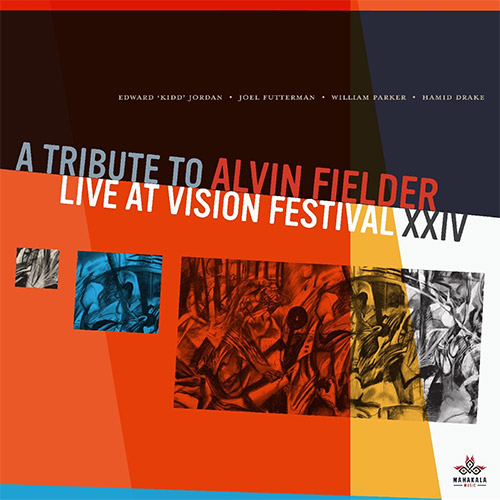
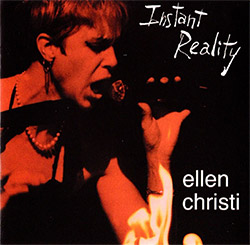
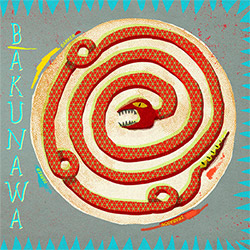

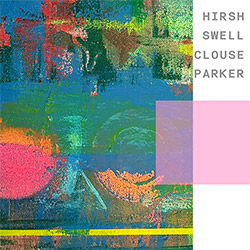
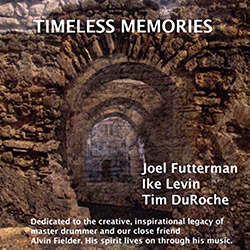
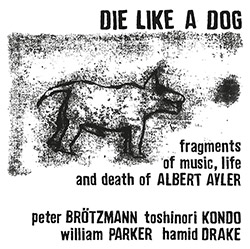
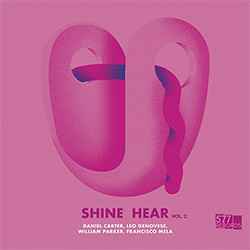
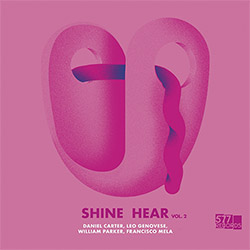
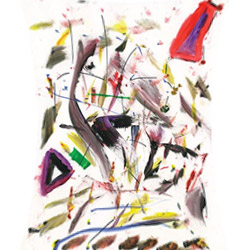
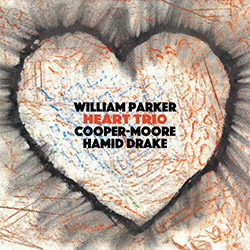
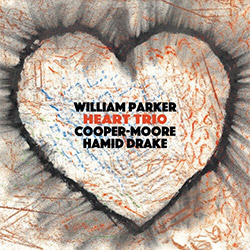

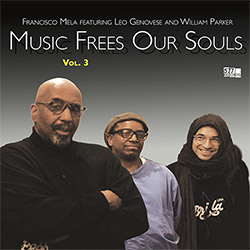


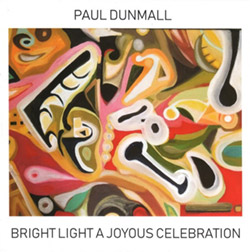


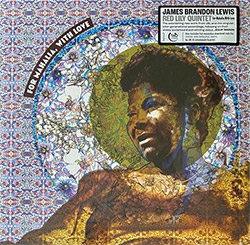


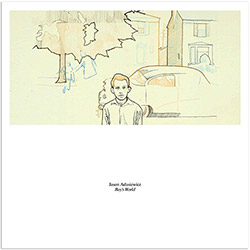
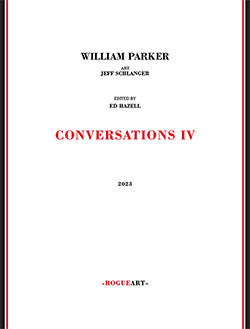
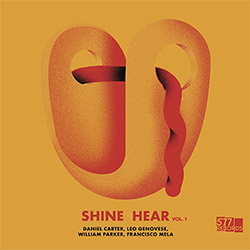
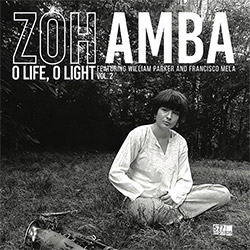
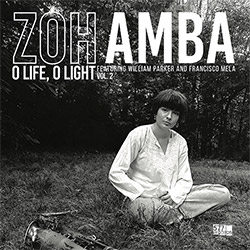






![Ackerley / Prymek / Turner: All Hope With Sleeping Minds [CASSETTE]](https://www.teuthida.com/productImages/misc4/35950.jpg)
![Myers, David Lee : Tin Drop Tear [BOOK w/ DOWNLOAD]](https://www.teuthida.com/productImages/misc4/36030.jpg)



![Schindler, Udo / Sandy Ewen / Damon Smith: Munich Sound Studies Vols. 4, 5 & 6 [3 CDs]](https://www.teuthida.com/productImages/misc4/35966.jpg)






![Turbulence Orchestra & Sub-Units: Smear Out the Difficulties (Double Live) [2 CDs]](https://www.teuthida.com/productImages/misc4/36048.jpg)
![Perelman, Ivo / Tyshawn Sorey: Paralell Aesthetics [2 CDs]](https://www.teuthida.com/productImages/misc4/35871.jpg)


![Sjostrom, Harri: SoundScapes #4 Festival Berlin 2023 [3 CDs]](https://www.teuthida.com/productImages/misc4/35874.jpg)

![Musicworks Magazine: #150 Winter 2024/25 [MAGAZINE + CD]](https://www.teuthida.com/productImages/misc4/36035.jpg)





![Glenn, Jordan: Flustered [CASSETTE]](https://www.teuthida.com/productImages/misc4/35948.jpg)


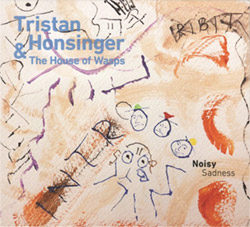
![Lindorff-Ellery, Evan: Church Recordings from Monhegan [CASSETTE]](https://www.teuthida.com/productImages/misc4/35949.jpg)
![Schindler, Udo / Werner Dafeldecker / Gunnar Geisse: Travelling Sound Images - Cognitive Transfers [Trio]](https://www.teuthida.com/productImages/misc4/35767.jpg)

![Egberth, Dennis: The Dennis Egberth Dynasty [VINYL]](https://www.teuthida.com/productImages/misc4/35549.jpg)


![Schindler, Udo / Rieko Okuda / Eric Zwang Eriksson: Disturbed Terrains [2 CDs]](https://www.teuthida.com/productImages/misc4/35330.jpg)
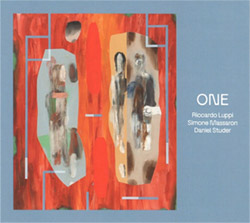
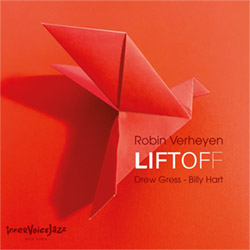
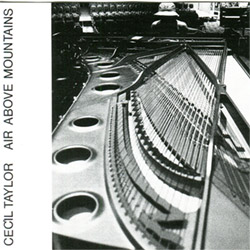


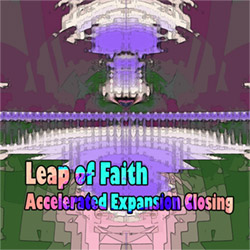
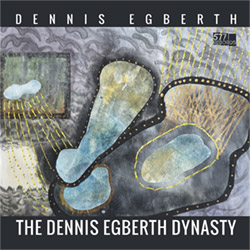
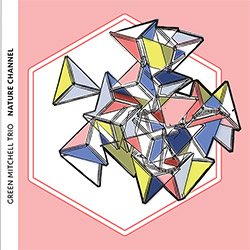

![Wolf Eyes / Anthony Braxton: Live At Pioneer Works, 26 October 2023 [VINYL]](https://www.teuthida.com/productImages/misc4/35839.jpg)




![Olencki, Weston : Pearls Ground Down To Powder [VINYL]](https://www.teuthida.com/productImages/misc4/35956.jpg)
![Myers, David Lee: Oculus [2CDs]](https://www.teuthida.com/productImages/misc4/35857.jpg)


![dustsceawung: dustsceawung [CASSETTE w/ Download]](https://www.teuthida.com/productImages/misc4/35753.jpg)




![Halls of the Machine: Atmospheres For Lovers And Sleepers [CASSETTE w/ DOWNLOAD]](https://www.teuthida.com/productImages/misc4/35806.jpg)



![AHC (Alexander Cooper): Lase [2 CDs]](https://www.teuthida.com/productImages/misc4/35754.jpg)



![Fagaschinski, Kai / Yan Jun : Graveyard Processions [VINYL w/ DOWNLOAD]](https://www.teuthida.com/productImages/misc4/35474.jpg)
![Brant, Cody / Carl Kruger: Smoke Detail [CASSETTE w/ DOWNLOAD]](https://www.teuthida.com/productImages/misc4/35551.jpg)







![Zorn, John / JACK Quartet: The Complete String Quartets [2 CDs]](https://www.teuthida.com/productImages/misc4/35609.jpg)

![Lonsdale, Eden: Dawnings [2 CDs]](https://www.teuthida.com/productImages/misc4/35480.jpg)







![Sanna, Claudio: Compositori Sardi Contemporanei II [2 CDs]](https://www.teuthida.com/productImages/misc4/35317.jpg)







![Zurria, Manuel: Fame di Vento [3 CDs]](https://www.teuthida.com/productImages/misc4/35167.jpg)

![Granberg, Magnus / Nattens Inbrott / Skogen: Holde Traume, Kehret Wieder! [2 CDs]](https://www.teuthida.com/productImages/misc4/35038.jpg)

![Electric Bird Noise / Derek Roddy: 8-10-22 [CD EP]](https://www.teuthida.com/productImages/misc4/35970.jpg)








![Elephant9 : Mythical River [VINYL]](https://www.teuthida.com/productImages/misc4/34624.jpg)



![Elephant9 with Terje Rypdal: Catching Fire [VINYL 2 LPs]](https://www.teuthida.com/productImages/misc4/35355.jpg)
![Deerlady (Obomsawin, Mali / Magdalena Abrego): Greatest Hits [VINYL]](https://www.teuthida.com/productImages/misc4/34876.jpg)







![Surplus 1980: Illusion of Consistency [CD]](https://www.teuthida.com/productImages/misc4/35069.jpg)
![Staiano, Moe: Away Towards the Light [VINYL + DOWNLOAD]](https://www.teuthida.com/productImages/misc4/35037.jpg)



![Caveira (Gomes / Sousa / Abras / Ferrandini): Ficar Vivo [VINYL]](https://www.teuthida.com/productImages/misc4/34643.jpg)
![Coley, Byron: Dating Tips for Touring Bands [VINYL]](https://www.teuthida.com/productImages/misc4/17906.jpg)

![Lost Kisses: My Life is Sad & Funny [DVD]](https://www.teuthida.com/productImages/misc4/lostKissesDVD.jpg)